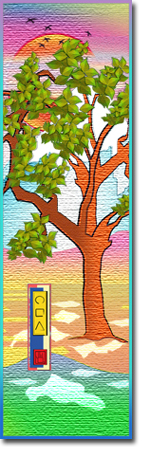On The Way: The Daily Zen Journal
West Mountain Evening Talk – Part 1
Muso Soseki (1275-1351)

When the Master was living at Nanzen-ji as a head priest, Gen’no Osho said to him, “For the last twenty years, ever since you finished your study in the monasteries, you have been moving from one place to another. By now you have changed the place you live more than ten times. I think this is harmful to a Zen student. It exhausts him and interferes with his practice.
“But recently I read the Sutra for the Period of the Imitative Dharma and according to that, the Buddha said, ‘Students must stay at one place for no more than three months. Anyone who accused those who move on of being flighty will go to hell.’ That disposed of some of my concern.”
The Master answered, “It was not because of the Buddha’s words that I kept moving on. I think of his enlightenment as my home, and I never left that whether I went off to the East or stayed behind in the West.
“Some people stay at one monastery for a long time, but they do not always sit on the same Zen mat. Sometimes they leave it to wash their hands or faces. Sometimes they walk in the garden or climb a mountain or look out over the country.
“You might say that they, too, were rather frivolous. But because their minds are fixed on the one point even when they are moving around, it is not correct to say that they are somewhere else. If they can free their limited minds and play in the boundless world, there is nothing to reproach them for, is there?”
A monk said to the Master, “You are a descendant of Lin-chi Zenji, but you do not teach your students in the traditional Rinzai way. Instead, you always give lectures on the sutras. Why is that?”
The Master answered, “For a Zen student, knowledge-understanding and practice-understanding must go together. Even then the student will not be able to benefit everyone until he has found the right person and the right circumstances. I am still no more than a fledgling, and my ability is only partly formed. I have not met the one teacher or found the best circumstances. So it is a mistake to be too critical of me.
“Nowadays there is a tendency among Zen followers who cannot see into themselves or into the subtle workings of Zen to memorize old saws just to keep a dialogue turning like a wheel, and sometimes they push or pull in some manner that’s supposed to look like Zen. They flatter themselves that in doing things like that they are manifesting the heart of the Dharma.
“None of that amounts to anything. They’re deceiving themselves. It’s not hard to imitate the manners of the ancients, but it’s very difficult to attain their virtue. I don’t think much of those who set such store by externals and never notice their own lack of virtue.”
The monk went on, “Then why do you preside over a sangha, comment on the sayings of our predecessors, and expound the sutras?”
The Master replied, “Those who do evil do it not because they want to go to hell but because of an earlier karma. I myself would not dare to aspire to the title of ‘Master.’ Just the same I lead a sangha only because some remnant of virtue enacted in a former life impels me to do it. I don’t wish to enjoy a retired life with my gate shut.
“And it follows, just as my arms swing when I walk, that I expound the sutras, comment on the words of the Patriarchs, and in that way allow those who do not believe in the law of cause and effect to learn that it exists and help people who know nothing of Mahayana and Zen to learn the truth.
“Once a Zen master served tea to travelers beside the road for the purpose of sharing the Dharma with many people. My purpose is the same when I talk about the sayings and teachings of the Buddha and the Patriarchs.”
The monk asked, “Many priests and laypeople nowadays believe in Zen, so why do you say that you have not had a chance to meet someone suited to you?”
The Master answered, “I don’t mean that no one has Zen insight, but only that no one’s view accords completely with mine.”
The monk went on, “Even a dull student, though he may not attain satori, will grasp something of the Dharma if you show it to him directly. Why do you ignore someone like that?”
The Master answered, “Haven’t you heard the saying ‘A thousand-pound bow and arrow won’t hit a mouse’? The Buddha came to this world, and his silent words and his long sermons have filled the sutra storehouse to overflowing. Why didn’t he simply show the truth? You should consider that.
“Yuan-wu says, ‘First deprive students of their preconceptions, and then they will be ready to undergo the ordinary Zen practice.’ And Ta-hui says, ‘Zen teachers should only preach Dharma according to their students’ level of Zen understanding.
“The Master’s way of teaching, sudden as a flint spark or a flash of lightning, can be grasped only by those who are ready for it. To use Zen methods of that kind with novices would be like pulling up young shoots that have just been planted.'”
The monk continued, “Are you saying that the Buddha’s teachings are really not true?”
Master replied, “All of your questions miss the point. So, the answers I’ve been giving you can’t be worth much either. I have made mud pies of words just to try to help you understand.”
A man once wrote to Yuan-wu, “Please give me a koan.”
Yuan-wu answered, “I hear you have always read the Sutra on Perfect Enlightenment. My koan for you is in that.”
“Yuan-wu usually gives his students koans such as ‘Mount Sumeru’ and ‘Chao-chou’s Mu.’ What kind of koan is ‘Read the Sutra?’ But if you understand what Yuan-wu really meant, you will see that not only the Sutra on Perfect Enlightenment but the other thousand sutras and ten thousand sayings, and even secular gossip and idle chatter, all of them without exception, are precisely the koans of the Patriarchs and the teachings of the Buddha. How dare you say that this is not true. Do you still criticize me for lecturing on the sutras and insist that I am not competent to be a Zen teacher?
“Once a master said, ‘Before the days of Ma-tsu and Pai-chang teachers put much emphasis on richi (intellectual learning) and little on kikan (Zen practice).’ What did he really mean? That the earlier teachers displayed nothing but intellectual understanding because they were without true insight? Or that those of later times lacked insight and so guided their students from the point of view of practice only, contradicting their predecessors?
“The teachings of the Patriarchs, as you know, are very different from the elucidations of Buddhist scholars, who never get further than ‘one foot is one foot and two feet are two feet.’ To be able to make one’s actions really accord with circumstances, watching the movements of the opponent and breaking through them, this is the meaning of the well-known Zen phrase, ‘family broken up, house ruined.’
“Today people divide up into two groups, those who believe in practice and those who put their trust in intellectual understanding, but neither of them has gotten out of the scholars’ gate. The Buddha said, ‘From my first sermon at Deer Park to my last one by the Hiranyavati River I have not preached a single word.’ If you can see what he meant by that you may praise or abuse me as you please.”
Muso Soseki (1275-1351)
excerpted from Sun at Midnight – Poems and Sermons of Muso Soseki Trans by W. S. Merwin and Soiku Shigematsu 1989





Ah, the patience of a good teacher resounds throughout this piece. The characters and their parts are timeless….we have all known challenging students who seem to push inappropriately, but like a highly skilled kendo master, Muso deftly answers questions that seem at times to cross the barrier of common courtesy.
And there are the obvious teaching points and the not-so-obvious ones. It’s always refreshing to hit the limits of what we know and get stopped in our tracks with no response.
In the beginning, we’re in such a hurry to understand practice, to make breakthroughs, to see “results!” No matter how many years we look into the heart of the matter, it seems to escape us. Then at some point, we simply stop looking so hard and things get less complicated. And the rest is what it simply is.
“I have made mud pies of words just to try to help you understand.”
However, we can’t go wrong with “great effort, no goal.”
Yours along the Way,
Elana